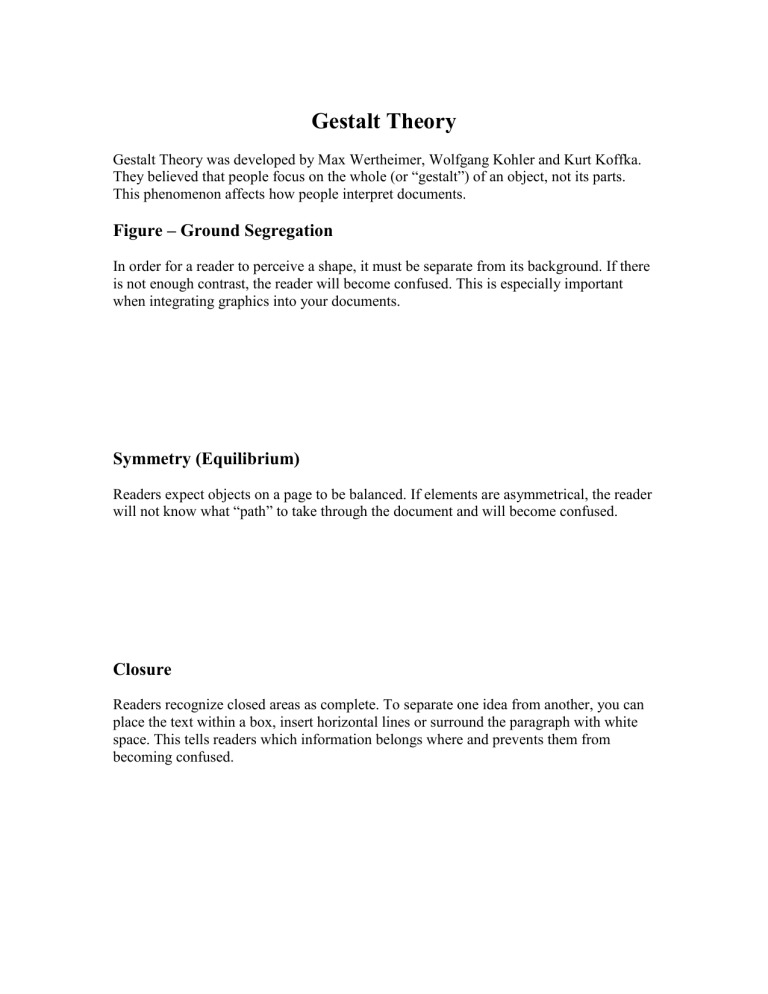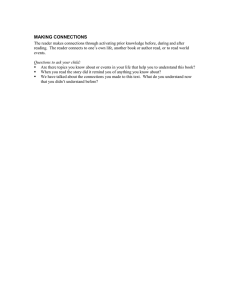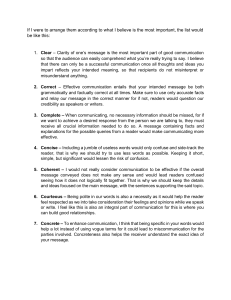
Gestalt Theory Gestalt Theory was developed by Max Wertheimer, Wolfgang Kohler and Kurt Koffka. They believed that people focus on the whole (or “gestalt”) of an object, not its parts. This phenomenon affects how people interpret documents. Figure – Ground Segregation In order for a reader to perceive a shape, it must be separate from its background. If there is not enough contrast, the reader will become confused. This is especially important when integrating graphics into your documents. Symmetry (Equilibrium) Readers expect objects on a page to be balanced. If elements are asymmetrical, the reader will not know what “path” to take through the document and will become confused. Closure Readers recognize closed areas as complete. To separate one idea from another, you can place the text within a box, insert horizontal lines or surround the paragraph with white space. This tells readers which information belongs where and prevents them from becoming confused. Proximity When two objects are placed side by side, readers assume there is a connection between them. A reader will mentally link objects that are nearest to each other together. When using graphics, it’s important that the corresponding caption is nearer to the graphic than any other text or picture. Good Continuation Human perception “tends to continue a shape or form beyond its terminal point.” Even if you only include half a shape on a page, the reader will fill in the blanks subconsciously. For example, if you put two horizontal lines in a document, the reader will subconsciously fill in the shape of a rectangle and assume that the information contained within the lines is unrelated to anything above or below it. Similarity “Units that resemble each other in shape, size, color or direction will be seen together as a homogenous grouping.” Type styles, fonts and sizes must therefore not be random. Similar items must receive similar effects. For example, if you choose to make one heading underlined, you must underline every heading. If you’ve chosen to use underlining for headings, you cannot use it elsewhere in the piece, since the reader will assume that the underlined information has the same importance as a heading.





